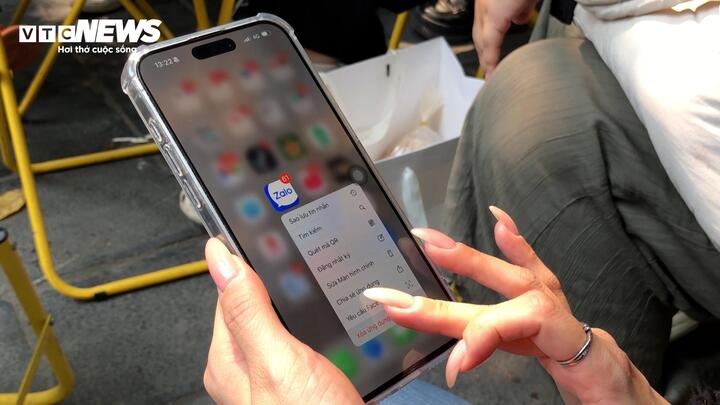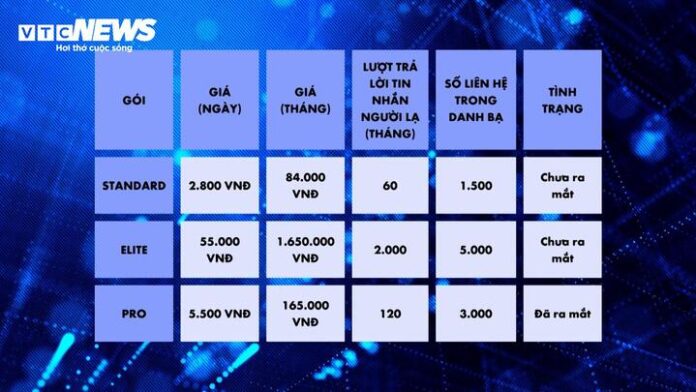Zalo Faces Backlash from Users over New Subscription Model: Is it a Pride or a Disappointment?
Zalo, a Vietnamese messaging app once considered a national tech pride, is facing a wave of backlash from its users after transitioning to a subscription-based model. What was once a source of pride is now at risk of becoming a “disappointment” as the app increasingly restricts the benefits of free users while failing to offer commensurate value in its paid package.
Restricted and Non-Transparent:
With over 77.7 million monthly active users and 2 billion messages sent per day, Zalo is more than just a messaging app; it’s a social, work, and commercial communication infrastructure for Vietnamese users. However, since 2022, Zalo has unexpectedly changed the game by charging nearly 200,000 VND/month for its Pro package while simultaneously cutting back on free user features.
The restrictions imposed, such as limiting friend connections, blocking message replies from strangers after 40 attempts/month, and preventing display in search results, have left users feeling “suffocated.” Many users describe the new policy as a trap: Zalo offers a free service to attract users, and once they’ve established thousands of connections, it starts charging them. Users are frustrated, saying, “It’s hard to leave, but it’s not easy to stay.”

The Pro package, with a fee of nearly 200,000 VND/month, puts pressure on regular users. (Photo: Khánh Huyền)
The monthly fee of nearly 200,000 VND, which is higher than mobile subscription fees, is considered unreasonable, especially for individual, non-business users. If all users were to pay this fee, Zalo could potentially collect thousands of billions of dong each month. This raises the question: Is Zalo innovating to enhance its product, or is it merely exploiting its users?
The issue goes beyond the subscription fee. Numerous complaints have surfaced, indicating that Zalo limits friend connections to 3,000 but lacks transparency in how this limit is calculated. Many users have deleted hundreds, even thousands of contacts, yet they are still unable to add new friends. There are no clear notifications, no tracking tools, and no indication of when they can “add again.”
“I deleted 500 people and still couldn’t add anyone new. Zalo doesn’t give any warnings, and the limit is kept secret. It’s so unfair!” exclaimed Ms. Ngo Phuong Ha from Hanoi, expressing her frustration.
This is not just a bad experience but a concerning type of ambiguity that goes against the principle of transparency in digital services.
Despite attempts to clarify these issues with Zalo’s representatives, VTC News reporters have not received a response as of this writing.
Going it Alone:
According to Mr. Tuan Ha, Chairman of Vinalink, Zalo is “going it alone” by not opening its API to connect with Facebook, Google, or other international platforms. While Telegram and WhatsApp continue to evolve with new features, Zalo remains confined within its closed ecosystem.

Experts believe that young people, the most potential user group, are gradually leaving Zalo. (Photo: Khánh Huyền)
“Zalo is like an isolated island—difficult to integrate and inflexible. If the paid package doesn’t offer superior features, users will leave,” predicted Mr. Tuan Ha.
He also warned that young people, the most potential user group, are gradually abandoning Zalo for platforms like Telegram and Discord.
From an economic perspective, Mr. Nguyen Tien Thoa, Chairman of the Vietnam Valuation Association, stated: “Enterprises have the right to charge fees, but they must be reasonable, transparent, and enhance value accordingly. Otherwise, users will turn away.”
Mr. Thoa also emphasized the necessity of monitoring the fees to ensure transparency and reasonableness in the fee-charging process: “If the fee is too high, beyond the affordability of consumers, Zalo will face the risk of losing market share to its competitors.”

Many users have complained about their experience with Zalo. (Photo: Khánh Huyền)
From a legal perspective, attorney Nguyen The Truyen shared: “Zalo is not wrong to charge fees. But if they don’t improve their services and provide clear explanations, the risk of losing market share is significant.”
Echoing this sentiment, economic expert Huynh Thi My Nương asserted: “Zalo is collecting twice—both subscription fees and user data. At the very least, they should be transparent: what are users paying for?”
A Double-Edged Sword:
Once a pride of Vietnamese technology, Zalo enjoys advantages in market share, loyal users, and familiarity. However, the app is now facing a challenging situation due to its own choices.
If Zalo continues with non-transparent fee-charging, basic feature cuts, and ignores user feedback, it risks losing its hard-earned position.
Zalo currently stands at an important crossroads in its development strategy. With the decision to charge subscription fees, Zalo may need to adjust its operations to adapt to the fiercely competitive market. However, changing policies can be a double-edged sword, enabling long-term sustainability while also creating risks as users seek alternative options.
Vietnamese users are willing to pay—but only when they feel respected.
Artificial Intelligence: Uncovering Stock Market Scams
In recent times, several prominent securities companies and enterprises have fallen victim to brand and leadership impersonation scams targeting investors. The tactics employed by these fraudsters are constantly evolving, and they are now utilizing advanced technology, AI, and deepfake methods to deceive unsuspecting individuals.



















